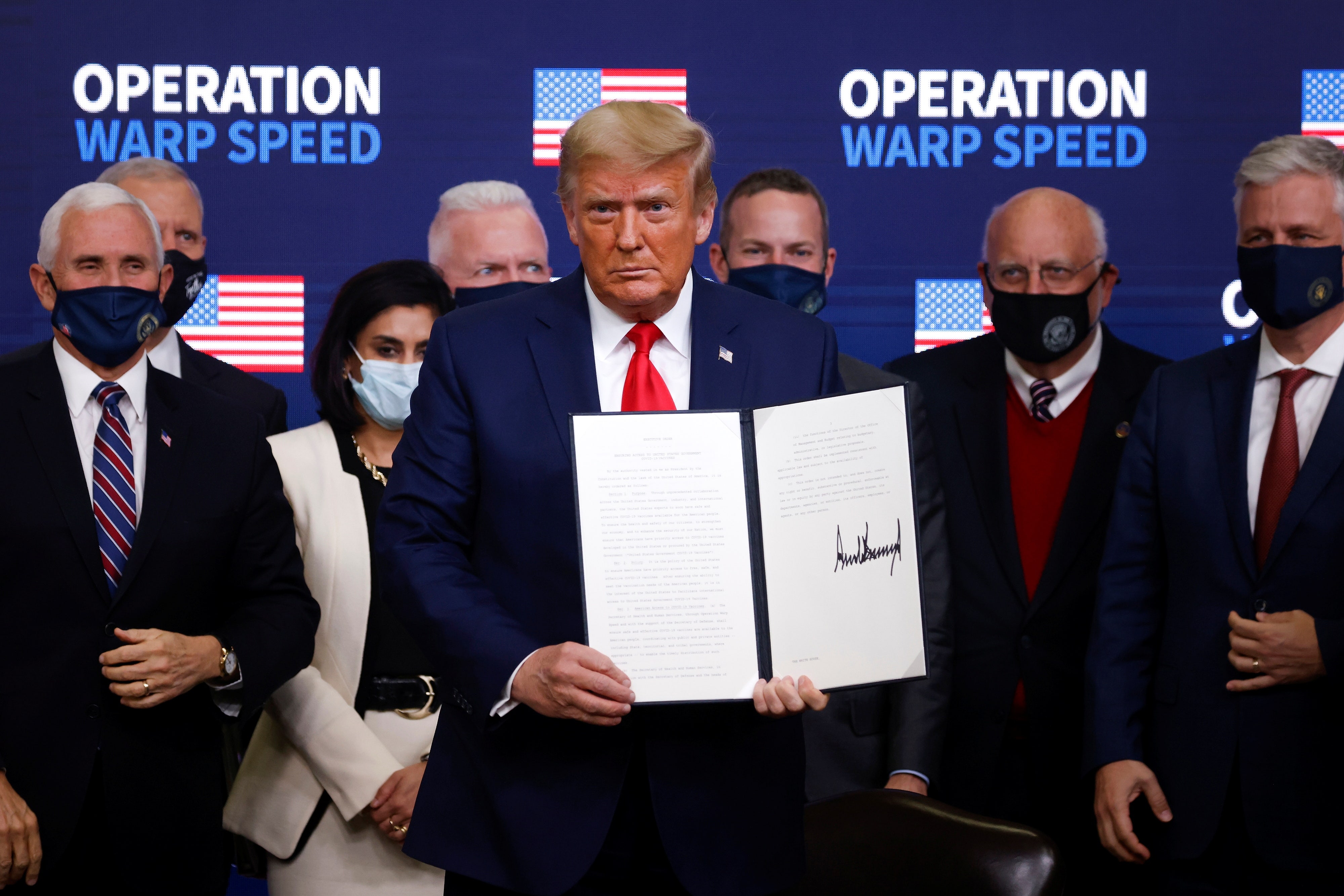Don't Undermine Warp Speed's Legacy: Why Cutting mRNA Research is a Dangerous Gamble

Operation Warp Speed, a hallmark of the Trump administration's response to the COVID-19 pandemic, demonstrated the incredible power of rapid vaccine development. The success of mRNA vaccine technology, a cornerstone of Warp Speed, has undeniably saved countless lives and reshaped our understanding of pandemic preparedness. However, recent proposals to cut federal funding for mRNA research, spearheaded by the Kennedy administration, threaten to dismantle the very foundation that enabled this breakthrough. This shortsighted decision risks jeopardizing future medical advancements and leaving us dangerously unprepared for the next global health crisis.
The rapid development and deployment of mRNA vaccines – utilized by Pfizer-BioNTech and Moderna – were a testament to years of prior research, much of which was funded by the U.S. government. These vaccines, unlike traditional vaccines, don't introduce a weakened or inactive virus into the body. Instead, they deliver genetic instructions that teach our cells to produce a harmless piece of the virus, triggering an immune response without causing illness. This technology’s adaptability is key – it can be rapidly modified to target new variants and potentially other diseases.
The Benefits Extend Far Beyond COVID-19
The implications of mRNA technology extend far beyond COVID-19. Researchers are actively exploring its potential in treating a wide range of diseases, including cancer, influenza, HIV, and even Alzheimer's. Imagine a future where personalized cancer vaccines, tailored to an individual's tumor profile, become a reality. Or a world where annual flu shots are replaced by mRNA vaccines offering broader and more effective protection. These possibilities are within reach, but only if we continue to invest in this transformative technology.
Kennedy's Proposed Cuts: A Step Backwards
The proposed cuts to federal mRNA research funding are deeply concerning. While fiscal responsibility is important, sacrificing long-term scientific progress for short-term budgetary gains is a dangerous trade-off. Reducing funding will stifle innovation, slow down the development of new therapies, and potentially leave us vulnerable to future pandemics. It sends a signal that the U.S. is no longer committed to leading the world in biomedical research.
Maintaining Momentum: A Call to Action
It's crucial that policymakers reconsider these proposed cuts and recognize the immense value of mRNA technology. Investing in research is not just about addressing immediate threats; it's about building a foundation for a healthier and more resilient future. We need to:
- Protect Existing Funding: Safeguard current funding levels for mRNA research and development.
- Promote Public-Private Partnerships: Encourage collaboration between government agencies, academic institutions, and private companies to accelerate innovation.
- Foster a Supportive Regulatory Environment: Ensure that regulatory pathways are streamlined and efficient, while maintaining rigorous safety standards.
Operation Warp Speed was a remarkable achievement, but it shouldn't be viewed as a one-time event. It was the culmination of decades of scientific research and a testament to the power of government investment in innovation. Let's not abandon the technology that made it possible. The future of medicine – and our ability to respond to future health crises – depends on it. We must prioritize continued investment in mRNA research to unlock its full potential and safeguard the health and well-being of generations to come. The legacy of Warp Speed should be one of continued progress, not premature abandonment.






/https://tf-cmsv2-smithsonianmag-media.s3.amazonaws.com/filer_public/8c/c2/8cc24a2e-43ab-4cf5-9b1e-5a55564399a9/15650124019_626490c0f4_k.jpg)